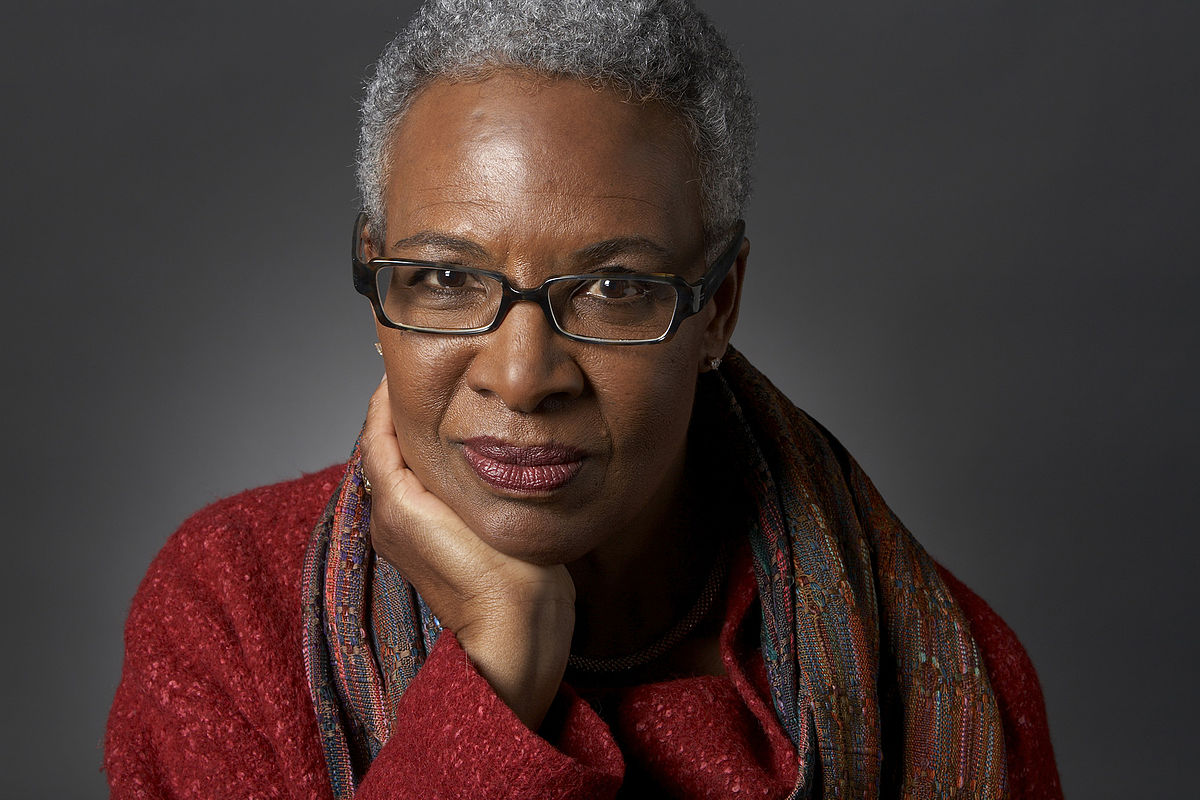Successful Agers in Action: Nell Painter
 By Maja Gawronska
By Maja Gawronska
On the first day of graduate school, Nell Painter found herself in front of a fellow student, eighteen-years old, who started at her in disbelief. Finally the student asked, "How old are you?" Painter was in her sixties when she went back to school to become an artist. Before starting her second act, she had an established career as a historian at Princeton University studying gender and race.
Painter was drawn to art from a young age. She even pursued an art major at UC Berkley before becoming a historian but dropped art after a failed class. Later in life, however, she started to seriously think about becoming an artist.
But she wasn't interested in an extra class or a lifelong education course. Her goal was to have proper training and a second, serious career. So, she decided to go back to college, get a bachelor of arts, and later a master of fine arts from the Rhode Island School of Design.
Painter was not the first person in her family to choose a path to successful aging. The idea that age should not be an obstacle in pursuing one's dreams was ingrained in her by her mother, who managed to change her life when she retired from a career in education at age sixty-five, embarked on writing, and published two books.
As happy as Painter is with the decision to start over and go to graduate school upon retiring, she certainly doesn't recommend it to everyone. She describes the experience as fulfilling but also sobering, tiring, and sometimes hard to tolerate. In her words, "Being old in our society—it's not for sissies."
Her advice to everyone who is thinking of going back to school is to ask yourself how much you can tolerate. Financial resources, time commitment, and lack of family time are factors to consider. Even more challenging was understanding the mindset of her peers, who are almost three times her junior. Being told what to do by an instructor or teacher also doesn't come easy at her age, especially after a career as a professor.
In exchange for these hurdles, however, there can be a profound feeling of self-accomplishment, transformation, and personal triumph. Painter has recounted her unique experiences in her book, Old in Art School: A Memoir of Starting Over.
Here is a Q&A with Nell Painter.
What's your definition of Successful Aging?
If I have a single definition, it's to do with seeing what you've already got and pushing just a little farther. For those with good health (like me, thank heaven), it's eating our vegetables every single day and taking a walk every single day. For those whose health is not so robust, keeping doing what you can do with a bit of exertion. I'm not a fan of "wellness," because it seems to me too often to devolve into a search for things to fix. At a price and with additional medication. By sixty-five or seventy-five, all will not be well, which, I think, we have to live with. In my final analysis, successful aging is simply aging—that is, not dying.
How to make more older adults age well?
If older people knew all the opportunities still before them, that would make a real contribution, I think. By "opportunities," I mean not only courses we can take for little or nothing and age appropriate travel, but also help caring for the grandkids when you children are distant or impaired or absent. Back in the 1980s, the Duke sociologist Linda Burton wrote about older people who were raising their children's children with insufficient support. Those older people were black and living in poor neighborhoods. The support they needed wasn't there, probably they were black and living in poor neighborhoods. But the needs still exist, and even for people who aren't black or who don't live in poor neighborhoods: transportation, access to food and recreation, affordable, accessible health care for elders and children.
What has shaped your attitude towards aging and gave you the strength to pursue "the 2nd act"?
My dear parents, both now deceased, provided the psychological and material support that assured me I could do what I wanted—as long as it was ethically sound. I never had to feel that following my own inclinations would mean depriving others. They also made me unafraid of adventure, even of failure (within bounds, of course). My husband has played a crucial role in my ability to step away from what has been expected of me. And then there's my own optimism, my conviction that if I just keep at it, things will work out all right—"work out" without my having a clear image of what "working out" looks or feels like.
Have you experienced ageism while at art school? How can we stop ageism on the societal level?
The art world is so besotted with youth that my 30-year-old fellow students felt old. In American society generally, women start feeling old and invisible as they approach forty, which to my mind is still young—or at least youngish. I suspect much of the blame belongs to our visual culture, in which people over forty really are far less visible. It's as though just being a normal grownup means looking like someone who's about thirty-two. I wish we could see images of normal grownups going about normal life as people in their sixties, seventies, and eighties. Not as old people, but just as people.
Within my lifetime, much of mainstream American visual culture has pretty much accomplished that shift with regard to black people. In the twentieth century I rarely saw images of black people as people just going about life, say, selling you stuff. In the late twentieth century, I started seeing black images as visible, ordinary black people, then later on, in the twenty-first century, as visible, ordinary people. I would love to see that shift occur with regards to old people.